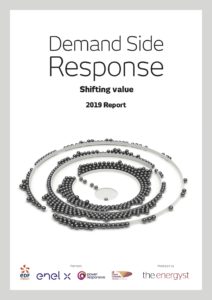
Severn Trent Water has engaged in DSR via two aggregators for the last three years. Now it plans to ramp up its activity – and harness the knowledge to inform battery storage investment.
Demand-side response manager, Rob Wild, says the firm has around 15MW of connected flexibility. About 10MW is generation-based, the remainder load from its treatment processes. Wild thinks there is potential for up to 50MW of flexibility across the estate.
Severn Trent’s involvement has largely been STOR the Capacity Market and FFR, but it is eyeing the wholesale market and Balancing Mechanism as value continues to shift.
Good payback
Overall, Wild says DSR has worked well.
“Payback is around three years, which is currently one of the best business cases within the organisation,” he says.
“From a technical risk perspective and operationally, we have not had any concerns,” says Wild, which has increased management confidence to invest further in flexibility.
“Handing over control to a third party was quite a big deal,” says Wild, adding that the key to assuaging concern was engaging all stakeholders from the outset.
“The first time we looked at DSR, we put a team together representing all stakeholder groups – particularly the tech and standards team, given we are a standards-heavy industry,” he explains. “They were involved all the way down to choosing which aggregators to work with. We did a full procurement exercise, which may seem over the top, but it meant we could give stakeholders confidence,” says Wild.
“If I was starting from scratch [in bringing DSR into a business], that would be a key message: Involve stakeholders all the way, and bring in the right resources – that can be expensive, but if you build it into the business case, you can do it.”
Better data, lower bills
Wild says going through the DSR process and connecting up assets has led to a greater understanding of their performance:
“It gives you more granular operational data, which has led us to realise that we have good amounts of headroom within processes. That is deliberate, but is has allowed us to get into the nitty gritty and work out if processes are truly optimised from a performance and energy efficiency perspective – which for a company like us that uses £100m of power – is always going to be worth more than DSR.”
Market insight
Severn Trent will also use the knowledge it is building of flexibility markets to shape future investments.
“It means we can have more informed conversations and it’s also applicable to other activities, such as storage,” says Wild.
“It is unlikely that we are not going to be operating dedicated storage in the future, so it is really important to understand the economic case.”
Breeding confidence
Wild says there still much to learn, but that the knowledge acquired to date feeds into Severn Trent’s wider environmental programme.
“This year, we’ve found top-down support on this. We have committed to the triple pledge of net zero carbon, 100 per cent renewables by 2030 and 100 per cent EVs where the vehicles exist, so the work we have done on DSR plays to that quite well,” says Wild.
Life after diesel
The possible exception to that is diesel, which Severn Trent has been running in some DSR programmes via back-up generators.
To comply with the Medium Combustion Plant Directive, the company is fitting abatement technology (SCR), though Wild says the biggest challenge is “interpreting the legislation … there is not a huge amount of upfront guidance.” He says from a “practical perspective, the Capacity Market [contract] pays for MCPD compliance”, though the cost of abatement rules out smaller engines.
Ultimately, the company is looking at technologies that could replace diesel for standby generation. “I am really interested in hydrogen as a storage vector, because we potentially have it available as part of the treatment process,” says Wild.
To discover options for new storage, generation and flexibility opportunities, Severn Trent ran a ‘soft market test’ over summer. It also asked for feedback on its procurement process with a view to enabling smaller companies to provide solutions.
Wild says the plan is to use the feedback to go to market “in the near future for batteries, storage and aggregation services.”

This article was first published in The Energyst’s 2019 DSR Report.
The report provides a comprehensive snapshot of the DSR market, a survey of DSR providers and qualitative interviews with industrial and commercial firms, plus views from National Grid ESO, distribution network operators, consultants and other market actors.
Download your free copy here.
Related stories:
2019 DSR Report: Shifting value
Does load DSR require a separate incentive?
EDF Energy: Flexibility is the key to Net Zero
DSR: Water firms, industrials and SMEs on what is working, what’s not
Charging reform ‘key to unlocking DNO flex’
UKPN: We’ll give flex every change before resorting to reinforcement
Severn Trent eyes more flex technologies, seeks input
Click here to see if you qualify for a free subscription to the print magazine, or to renew.
Follow us at @EnergystMedia. For regular bulletins, sign up for the free newsletter.



